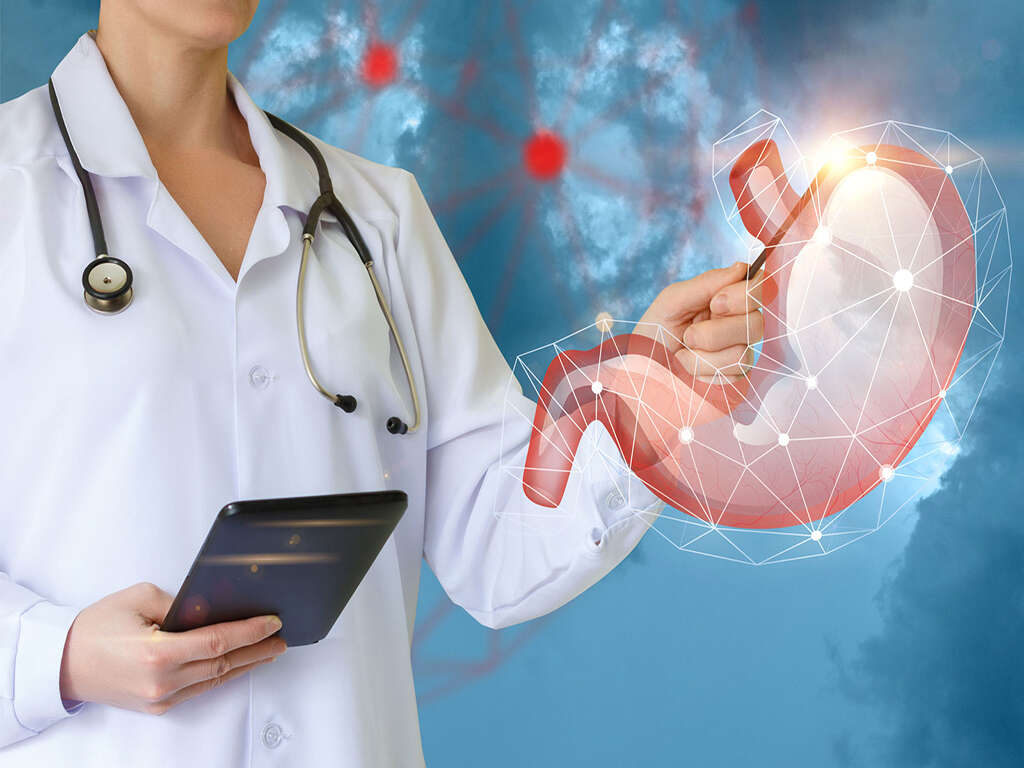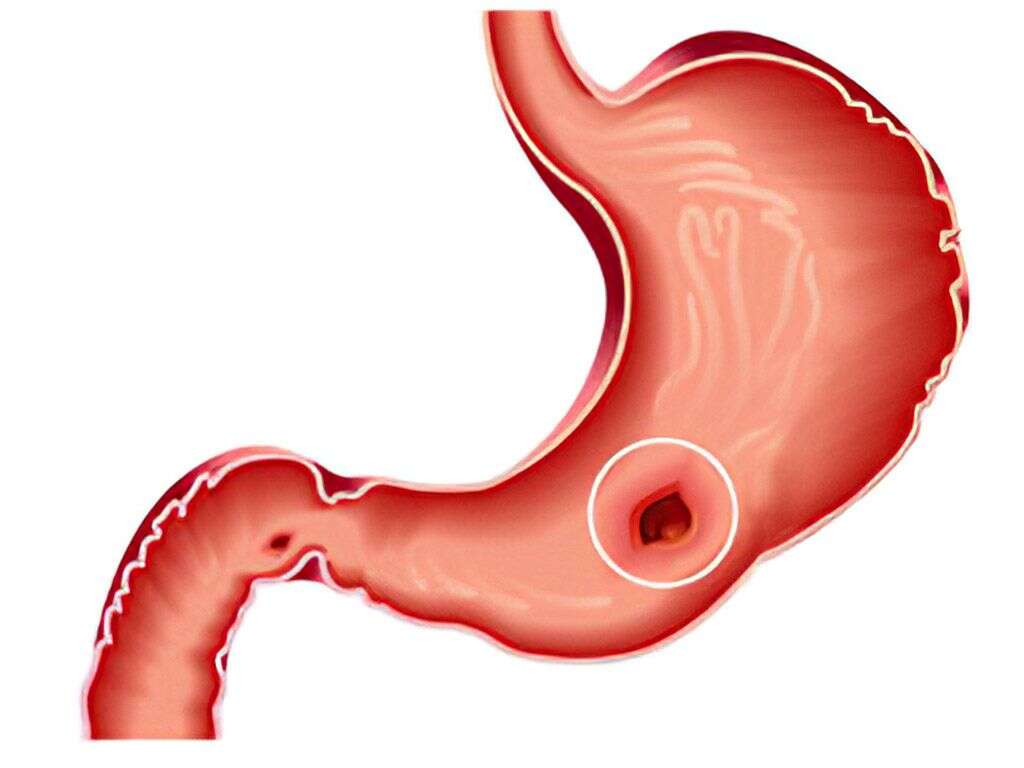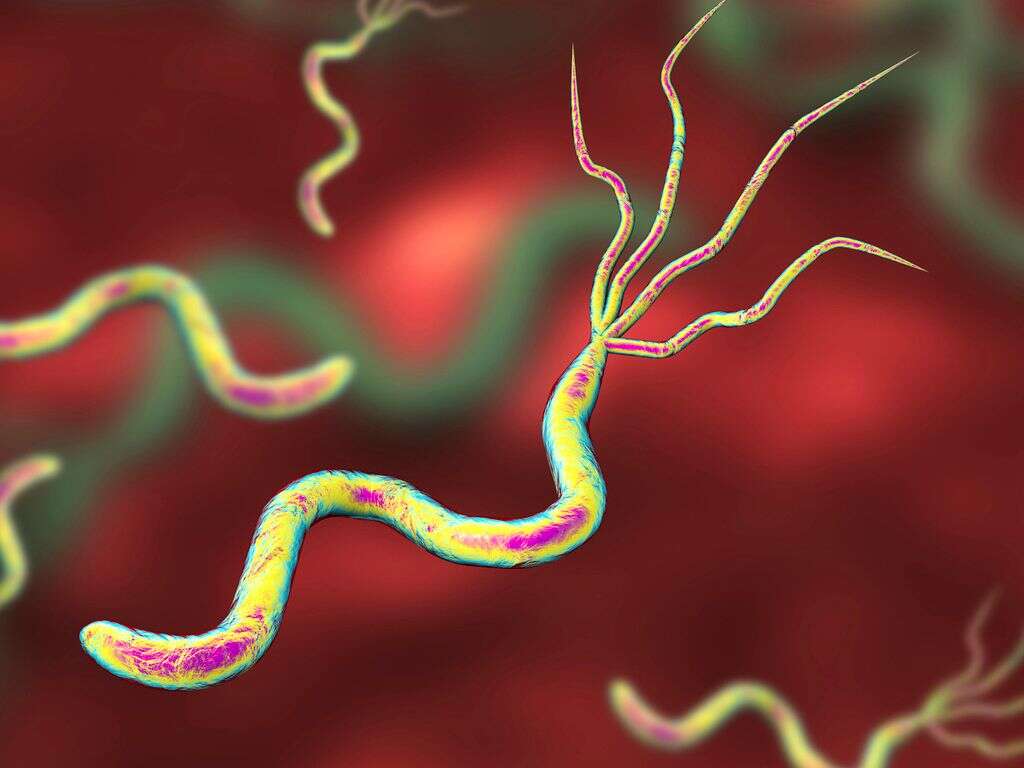What Is a Peptic Ulcer?
Aches and pains in the abdomen area are fairly common, and they will usually pass harmlessly within a day or two. Most of the time they are down to us having eaten something that does not agree with us, and the symptoms will pass once the problem has been dealt with.
If you are experiencing symptoms on a more permanent basis, however, then it is a sign that there might be a problem. There are many potential reasons for it, one of which is a peptic ulcer. These are basically open sores in the digestive system, and they can range from being mild, to being serious.

1. Peptic Ulcers
Peptic ulcers are ulcers that are found in the digestive system. There are two main types, which are stomach ulcers and duodenal ulcers. As the name suggests, stomach ulcers are found in the stomach. Duodenal ulcers, however, are found at the top of the intestines, not far from where the stomach is.
The only significant difference between the two is where they are located. The symptoms of both are very similar, as is the treatment of them. The causes of both types of peptic ulcer are also the same. Neither are usually dangerous, but they can be in a small number of cases.
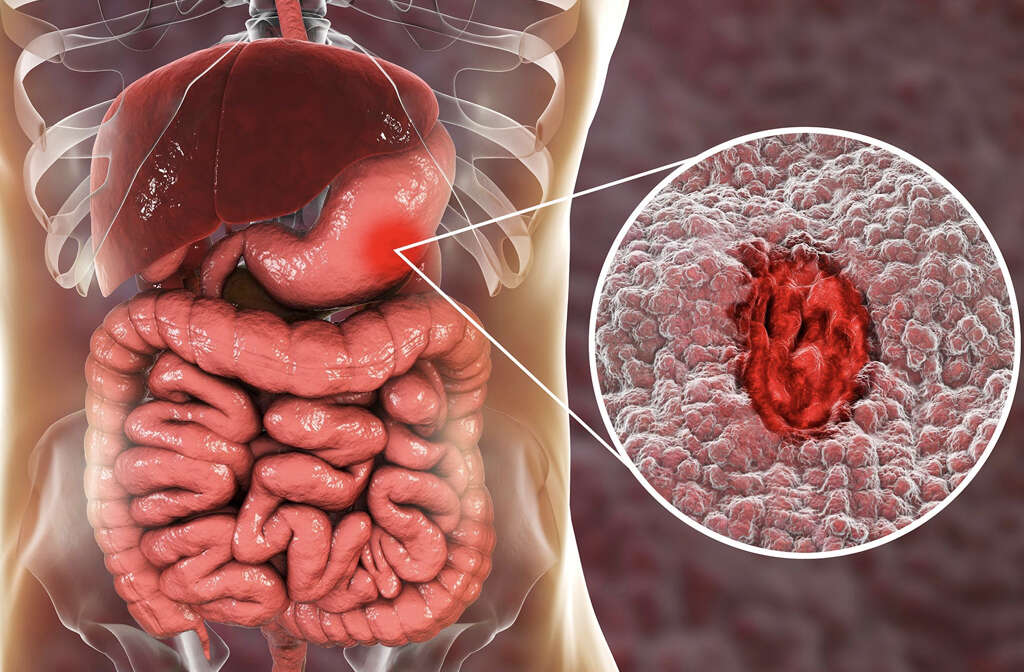
2. Helicobacter Pylori
Helicobacter pylori is a common bacterium that is found in most peoples’ bodies. It is usually quite harmless and will not even cause any symptoms most of the time, but severe infections can cause some very unwelcome symptoms. It tends to be contracted from shared crockery and utensils, and from infected food and water.
It tends to be more of a problem in developing countries where hygiene standards are poor. Helicobacter pylori is also one of the most common causes of peptic ulcers. Over time, it very gradually eats away at the protective lining of the stomach, eventually causing an ulcer.
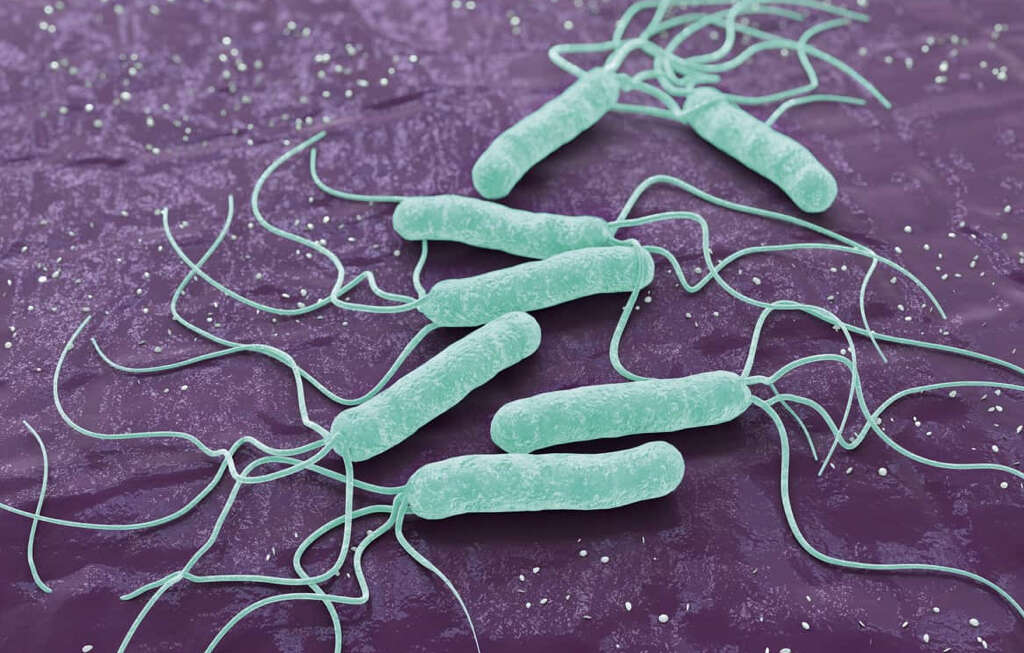
3. NSAIDs
Another fairly common cause of peptic ulcers are non-steroidal anti-inflammatory drugs, which are often called NSAID’s for short. These are fairly common medications that include painkillers and anti-inflammatories such as aspirin and ibuprofen. These drugs are usually easy to find and can often be purchased without a prescription.
These drugs are a problem because they affect certain enzymes in the body, including enzymes that help to protect the stomach lining against its own acidic juices. The drugs will only cause a peptic ulcer in a small number of cases. It is usually only people that use them in high volumes, or over a long period, that develop ulcers from using them.
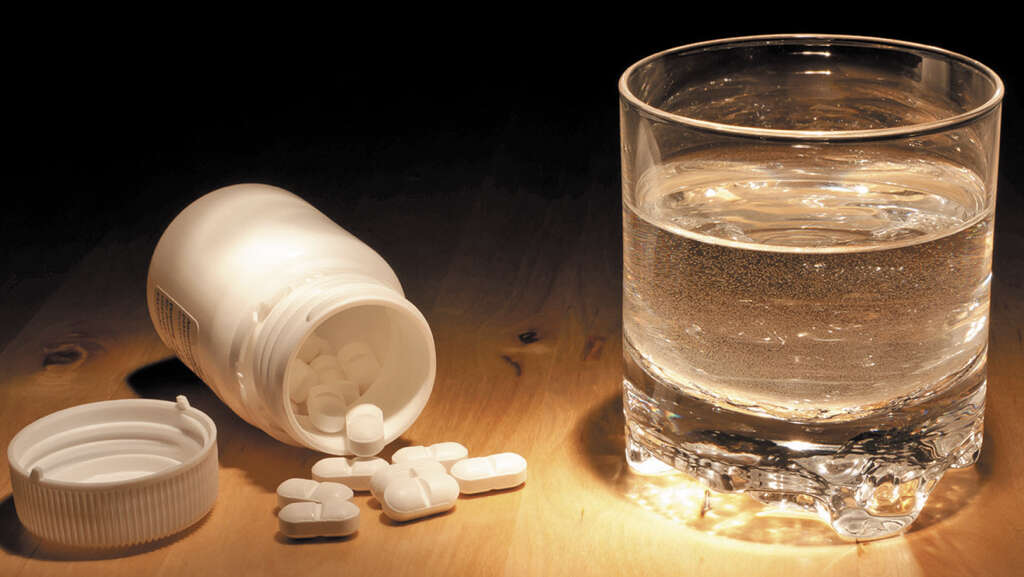
4. Alcohol
Alcohol is consumed in many places in the world and, for the most part, it helps people to relax and have some fun. While it can be beneficial in some ways, though, alcohol is certainly not without its drawbacks. Perhaps the main drawbacks are that alcohol comes with some potential short-term and long-term health problems.
One of these problems is that drinking excess alcohol can make people more likely than others to develop an ulcer. People that drink moderately are unlikely to have any difficulties, depending on whether or not they also avoid other potential causes. Smoking can also increase the chances that somebody will develop a peptic ulcer.

5. Food and Stress
It is not always clear exactly what has caused a peptic ulcer. It is thought by some that high levels of stress might be the cause in some cases, but this has not been proven to be true. Regardless, it is known that stress is bad for us in a number of ways, so it should be addressed as quickly as possible.
It is also thought that eating certain types of food can also be a cause of peptic ulcers in some cases but, again, this has not been confirmed. If there are foods that make you ill in some other way, then it is best to try and avoid them where you can. There are still usually plenty of other types left which means you get to enjoy lunchtimes safely.

6. Pain
In many cases, a peptic ulcer won’t cause many symptoms for the patient. In some cases, they will barely know the ulcer is even there a lot of the time. However, one symptom that a lot of people with a peptic ulcer will experience is pain. Many patients describe the pain as a gnawing or burning sensation coming from where their stomach is.
Pain is not the only symptom that patients will experience, and other symptoms include heartburn, indigestion, and nausea. Some patients will feel these other symptoms without feeling any pain. If you do have a severe pain in the stomach then you should arrange to get it checked out.
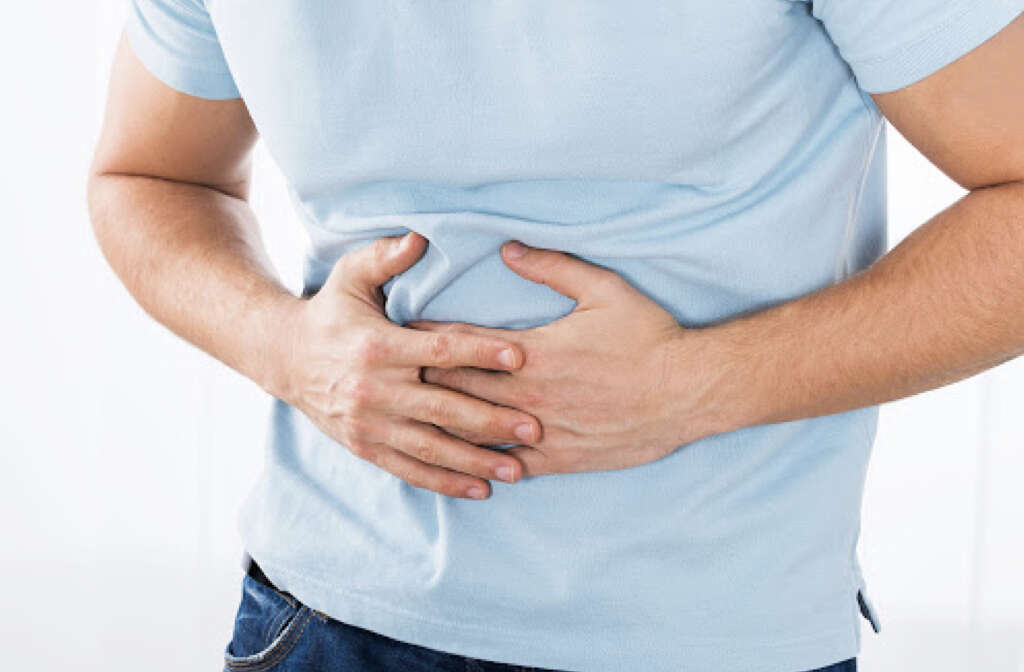
7. Severe Symptoms
As uncomfortable as they can be, peptic ulcers are not usually dangerous for the patient. Regardless, there are some symptoms that should encourage patients to seek medical assistance. One of these is a sharp and severe pain that comes on suddenly.
In addition, patients should arrange to see a doctor if they are vomiting blood. Stools that are dark and sticky with a tar-like consistency are a sign of internal bleeding because the texture is probably caused by blood in the stools. Blood in stools is not normal and is something that should be checked out by medical professionals.

8. Risk Factors
Peptic ulcers can occur in pretty much anybody. This includes people from all walks of life and even of all ages, but older people are more likely to get them than younger people. Both men and women can get peptic ulcers, but they occur more often in men than they do in women.
Because a lot of people don’t show symptoms of peptic ulcers, it is not known how many people have them. It is thought that they could be quite common. People that use NSAIDs and some other drugs might also be at a higher risk of getting a peptic ulcer.
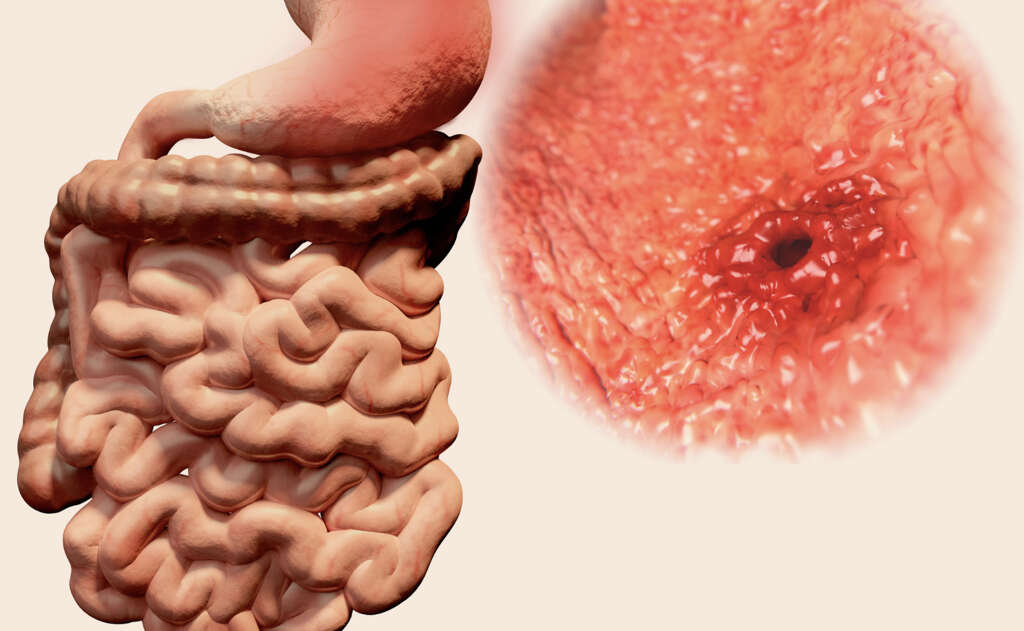
9. Complications
In most cases, peptic ulcers are at least manageable and will cause limited, if any, symptoms. Even when they do become very uncomfortable, they are still not usually a threat. They do become very serious in a small number of cases, however, and they can pose a threat to the patient’s life.
One such complication is a gastric obstruction, which means that food is being blocked by the ulcer. Excessive bleeding can become dangerous for the patient, while in some cases the ulcer can be torn open in what is known as a perforation. If any of these conditions are suspected then the patient should be found emergency medical assistance.

10. Treatment
The treatment for a peptic ulcer will depend largely on what is causing it. In cases where an H. pylori infection is the cause then antibiotics should be able to treat it. Proton pump inhibitors (PPIs) are medications that restrict the volume of digestive juices that the body produces.
This helps to protect the lining of the digestive system from their caustic effects, giving the ulcer time to heal. PPIs tend to be used particularly especially when NSAIDs are the problem, but are also used when other causes are behind the ulcer. In a small number of cases, surgery may be necessary.





